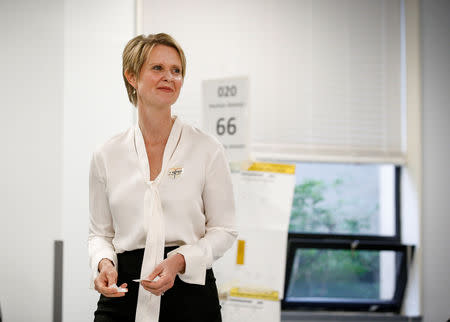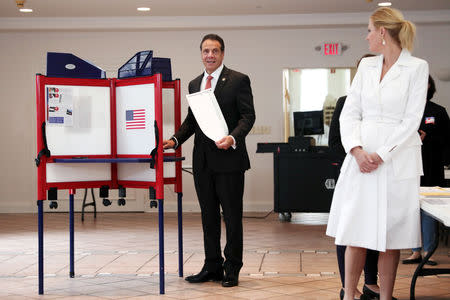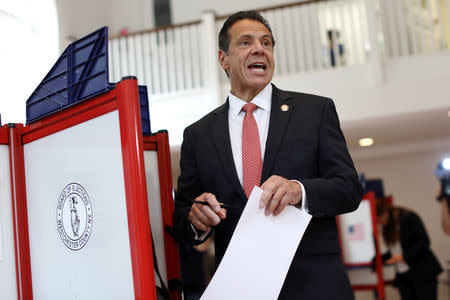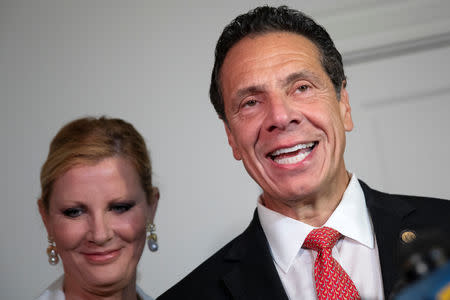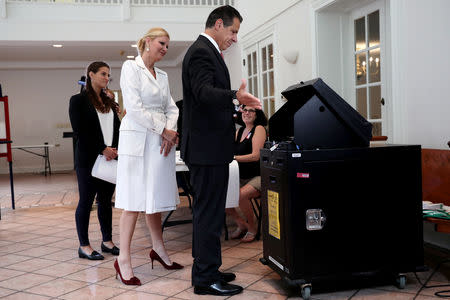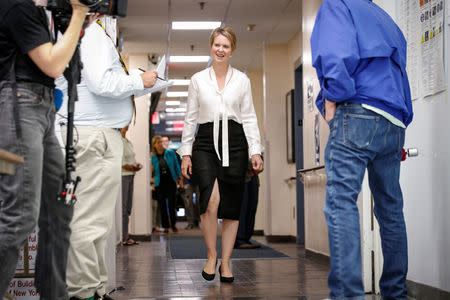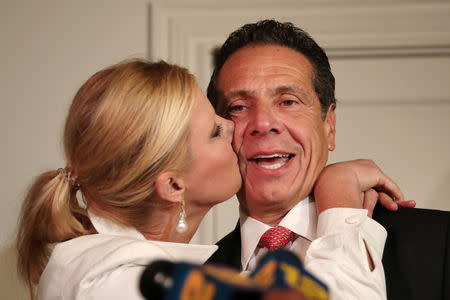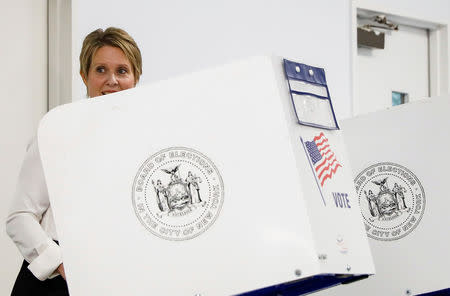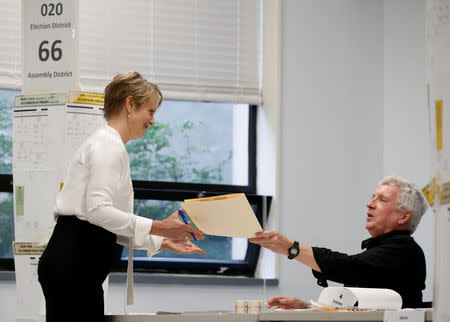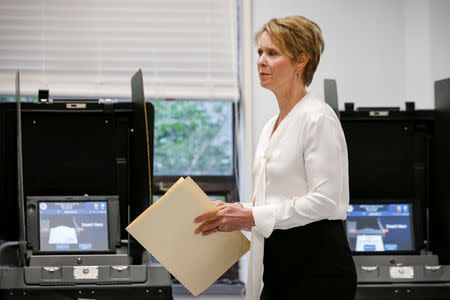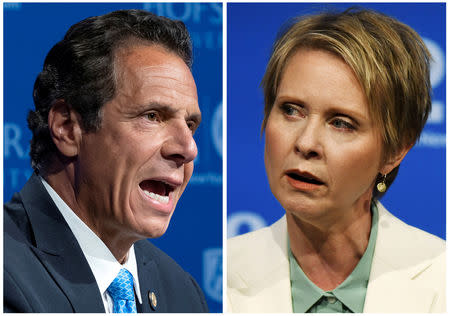Cuomo-Nixon showdown in New York governor's race goes to voters
By Jonathan Allen
NEW YORK (Reuters) - Democrats in New York were voting on Thursday whether Governor Andrew Cuomo deserves a third term or should be replaced by actress and activist Cynthia Nixon, a first-time candidate mounting a challenge from the left.
The nominating contest was the latest test for candidates from the party's energized left wing as Democrats seek to regain control of the U.S. Congress and bolster their ranks in state governments across the country in Nov. 6 elections.
Earlier this campaign season, Alexandria Ocasio-Cortez and Ayanna Pressley both upset long-serving Democratic incumbent congressmen in nominating races in New York and Massachusetts, promising more vigorous liberal policies and highlighting their opposition to Republican President Donald Trump.
Nixon is hoping to repeat that success in what she describes as her insurgent campaign. However, several outsider candidates challenging incumbent governors have fallen short during the nominating season.
While the contours of the Democratic race in New York look similar to those upsets, Nixon, best known for her Emmy-winning role on HBO's "Sex and the City," has trailed Cuomo by 30 points or more in opinion polls.
"Those were huge exceptions to the rule and to beat an incumbent in his own primary, you really have to draw an inside straight," Patrick Egan, a politics professor at New York University, said in an interview, referring to a lucky hand in poker.
The race has turned increasingly bitter and expensive, as Cuomo has spent $18 million to Nixon's $1.6 million, according to state figures. Nixon, who has never held office, has said Cuomo's experience has not translated to good governance. Cuomo has said she is inexperienced and naive.
In a contentious debate last month, Cuomo told Nixon to stop interrupting him, to which she responded: "Can you stop lying?"
Nixon would likely need a surge in voting activity in a state generally known for low turnout, especially in primaries, to win. In a 2014 nominating contest, Cuomo defeated his opponent with fewer than 600,000 people voting out of nearly 5.9 million registered Democrats in the state.
Should Cuomo win, he would be heavily favored against Republican Marc Molinaro, the Dutchess County executive, in the November general election.
Cuomo, 60, was born into politics as the son of Mario Cuomo, a longtime public figure who also served as New York governor. The younger Cuomo controls the party's state machinery and secured endorsements from members of the party establishment, but has drawn ire from progressives in the state who believe he has been too willing to negotiate with state Senate Republicans, blocking liberal priorities like voting rights reform.
Before casting his ballot in the town of Mount Kisco, Cuomo said New Yorkers must stand up to changes being made in Washington that he said ran counter to the state's values, according to local channel News 12 Westchester.
"There is a divisiveness that is coming out of Washington that I think is cancerous to our nation," Cuomo said.
Nixon, 52, has touted herself as a democratic socialist and a champion of causes such as abortion access, better funding for schools and equal rights for gay and lesbian people.
She greeted voters in Manhattan's Union Square on Thursday and cast her ballot at an East Village community center. Describing herself as a "queer" woman, Nixon has said that she better reflects the party's diverse ranks than her straight, white, male opponent.
Cuomo has countered he has a record of passing same-sex marriage and paid family leave in New York state and has declared that "nobody has stood up to Donald Trump like I have."
In an interview with Reuters last week, Nixon said: "I feel people are going to be very surprised on Thursday," and cited victories she felt her campaign had already scored.
"There are certainly ways we've been able to move the governor to the left, on criminal justice issues, on environmental issues, on political issues."
(Reporting by Jonathan Allen; editing by Peter Cooney and Lisa Shumaker)
